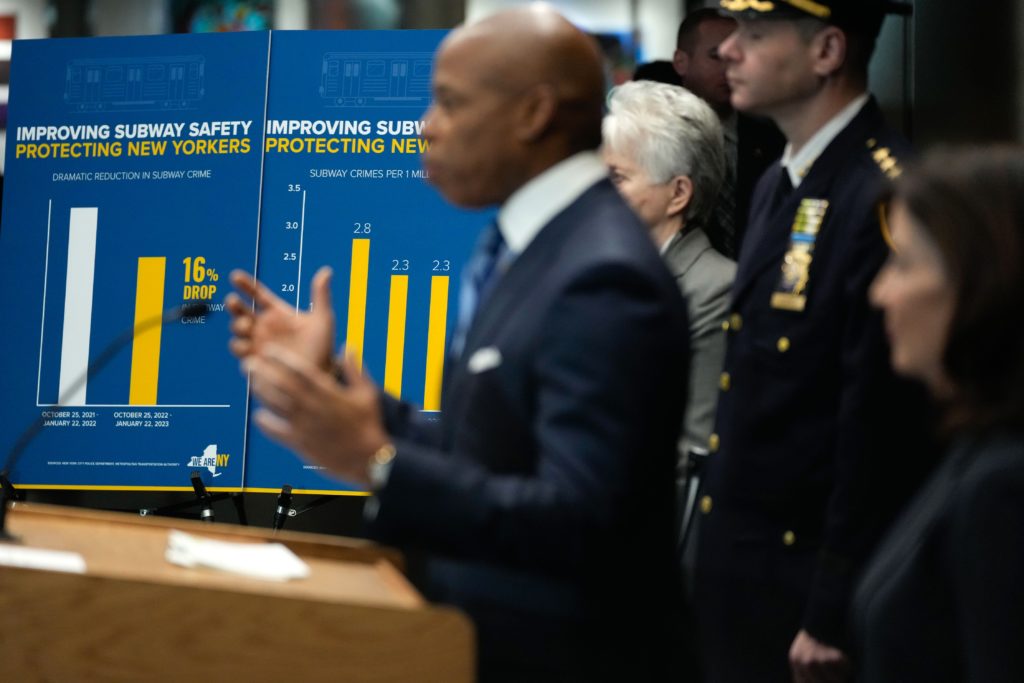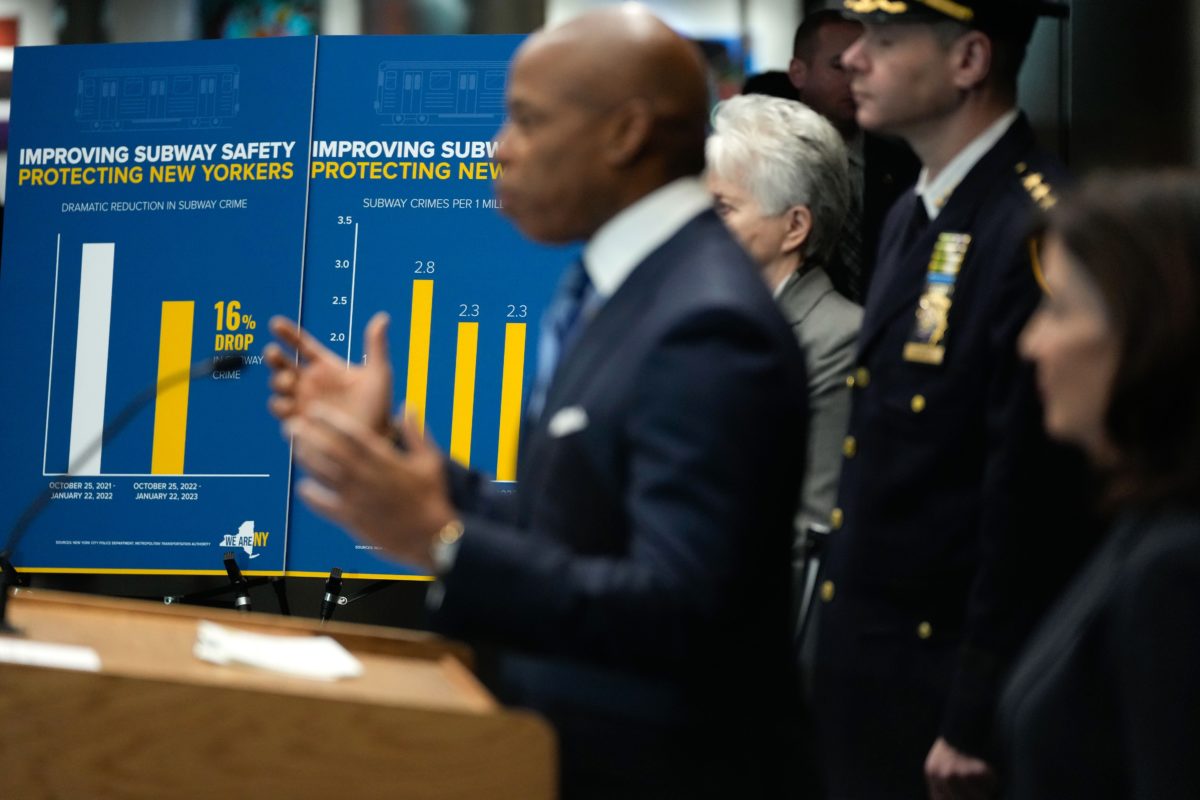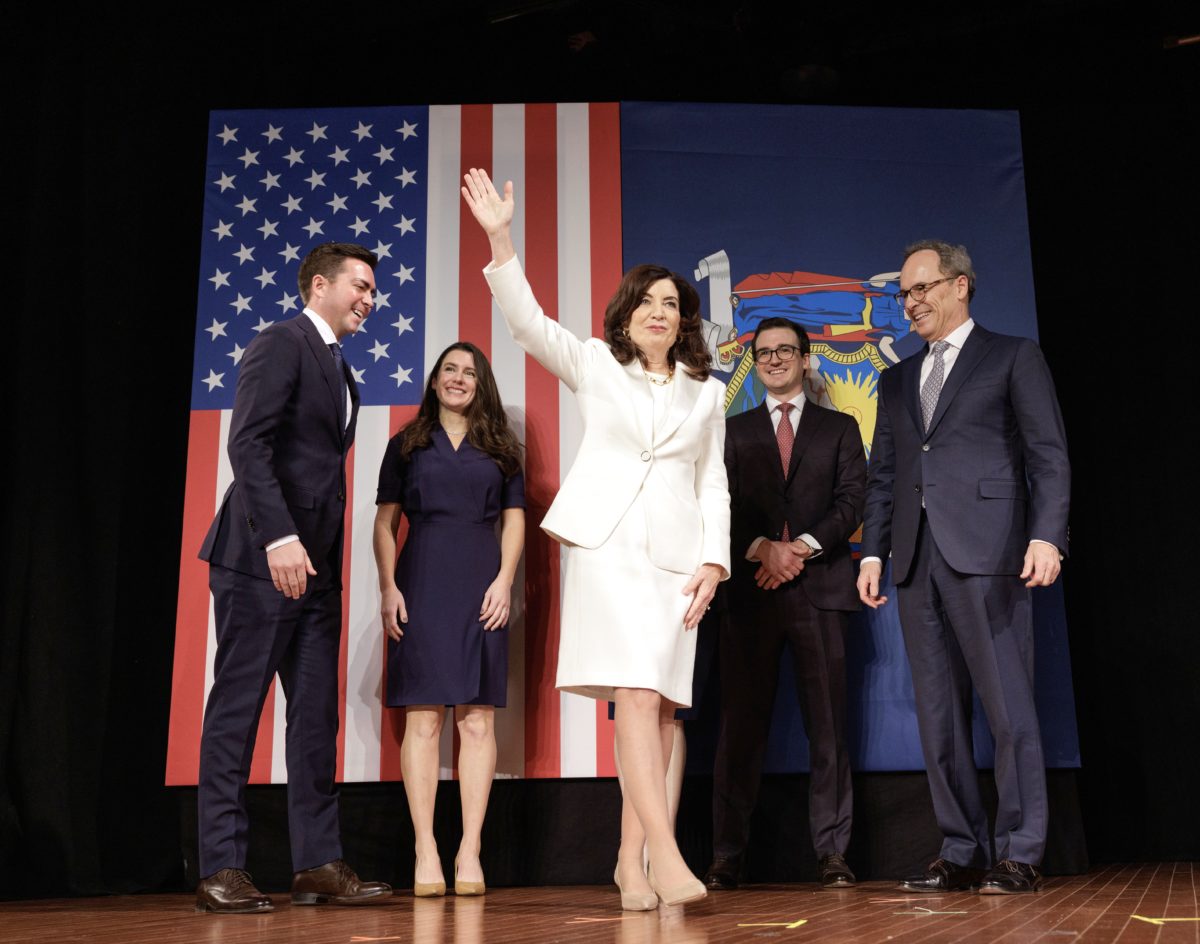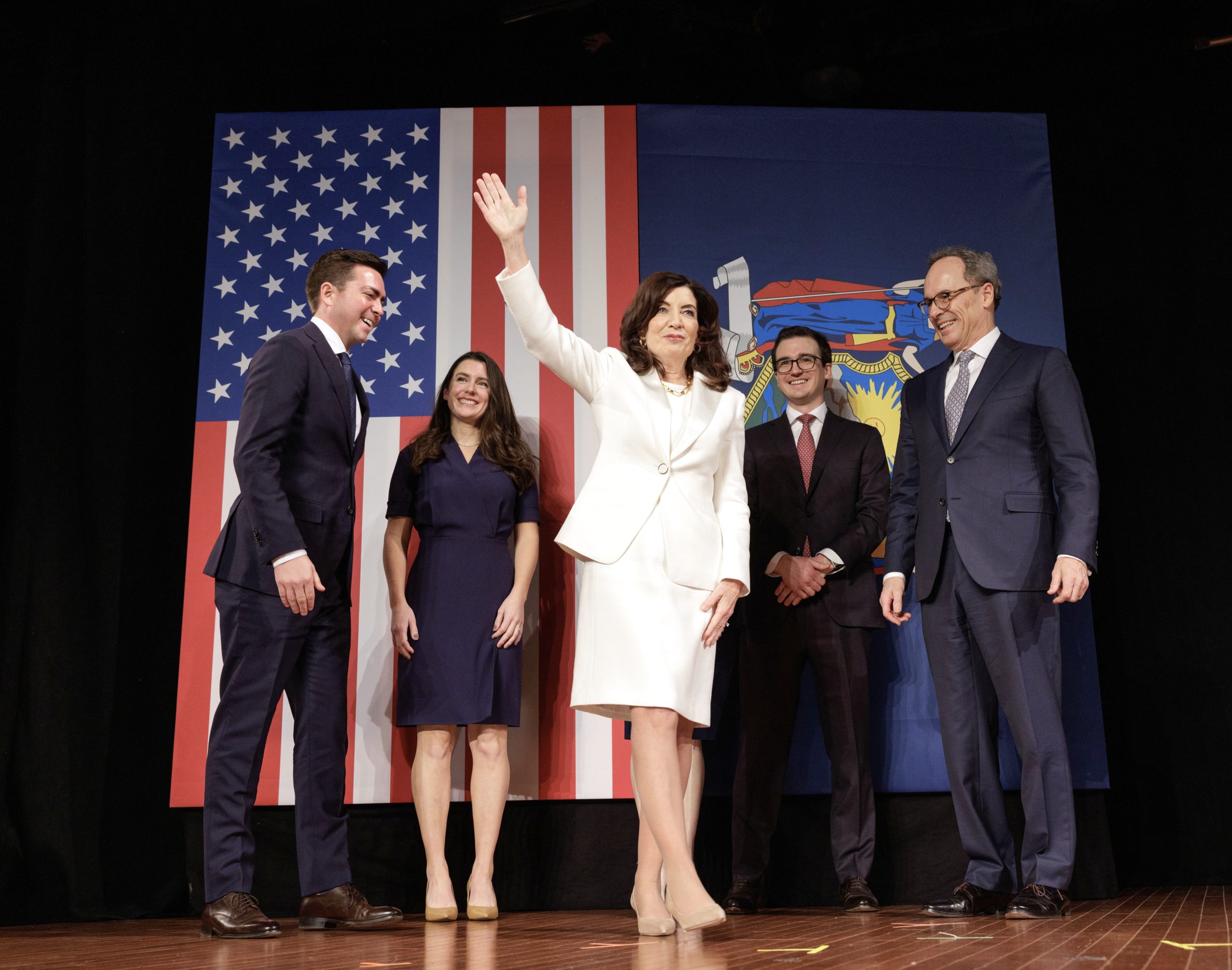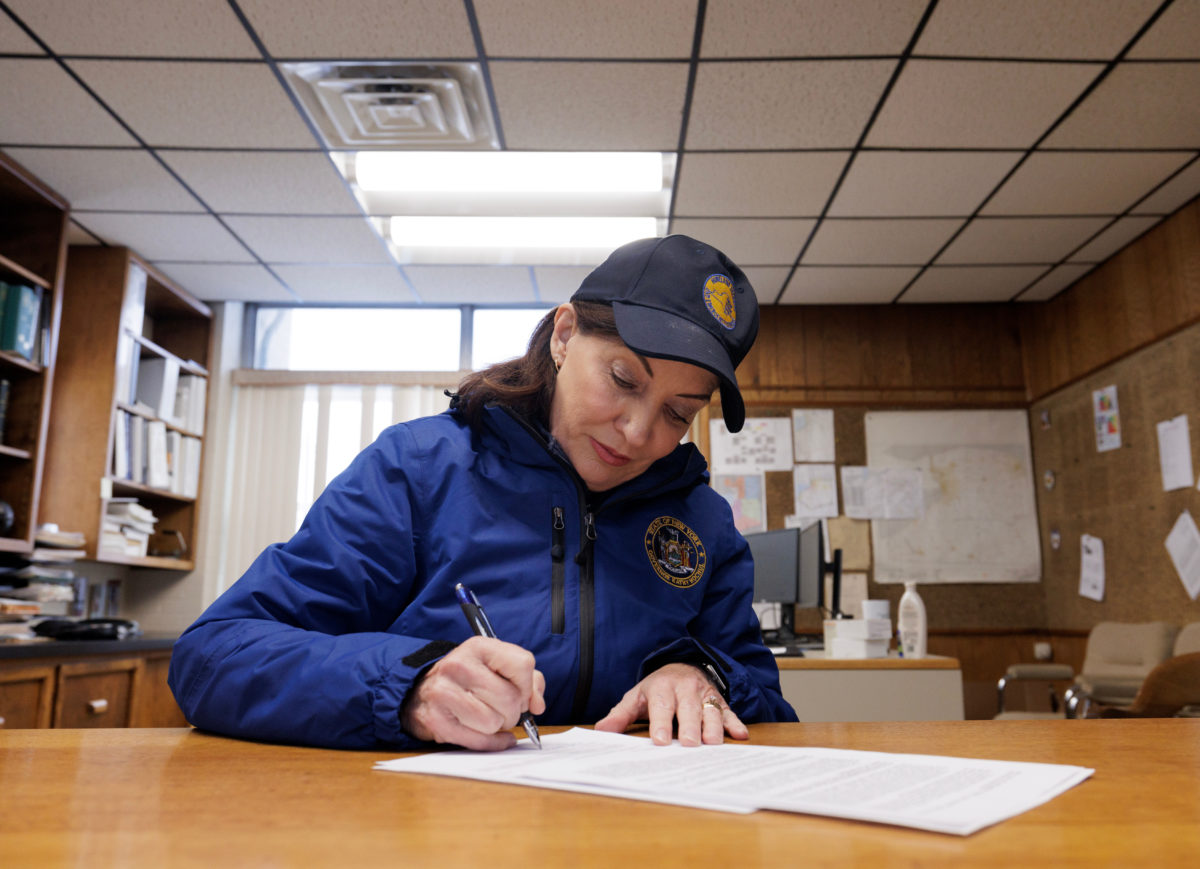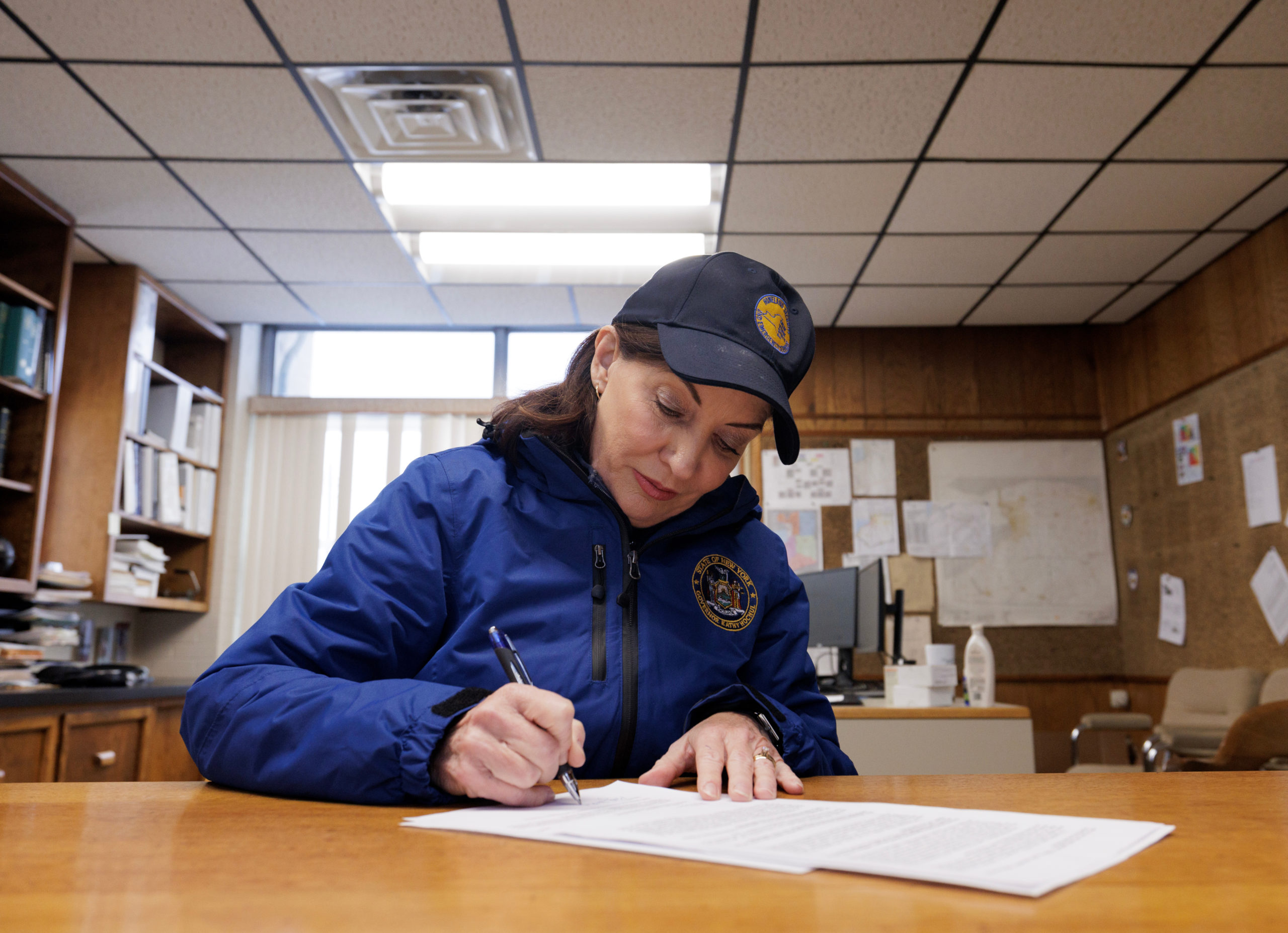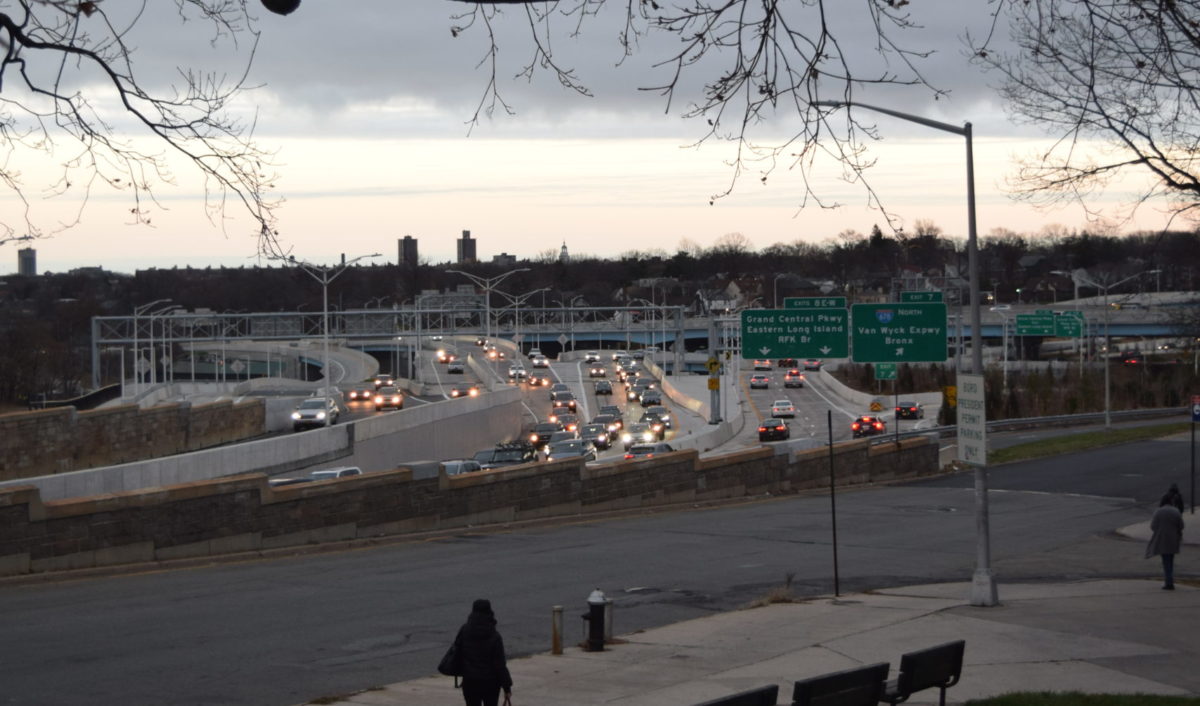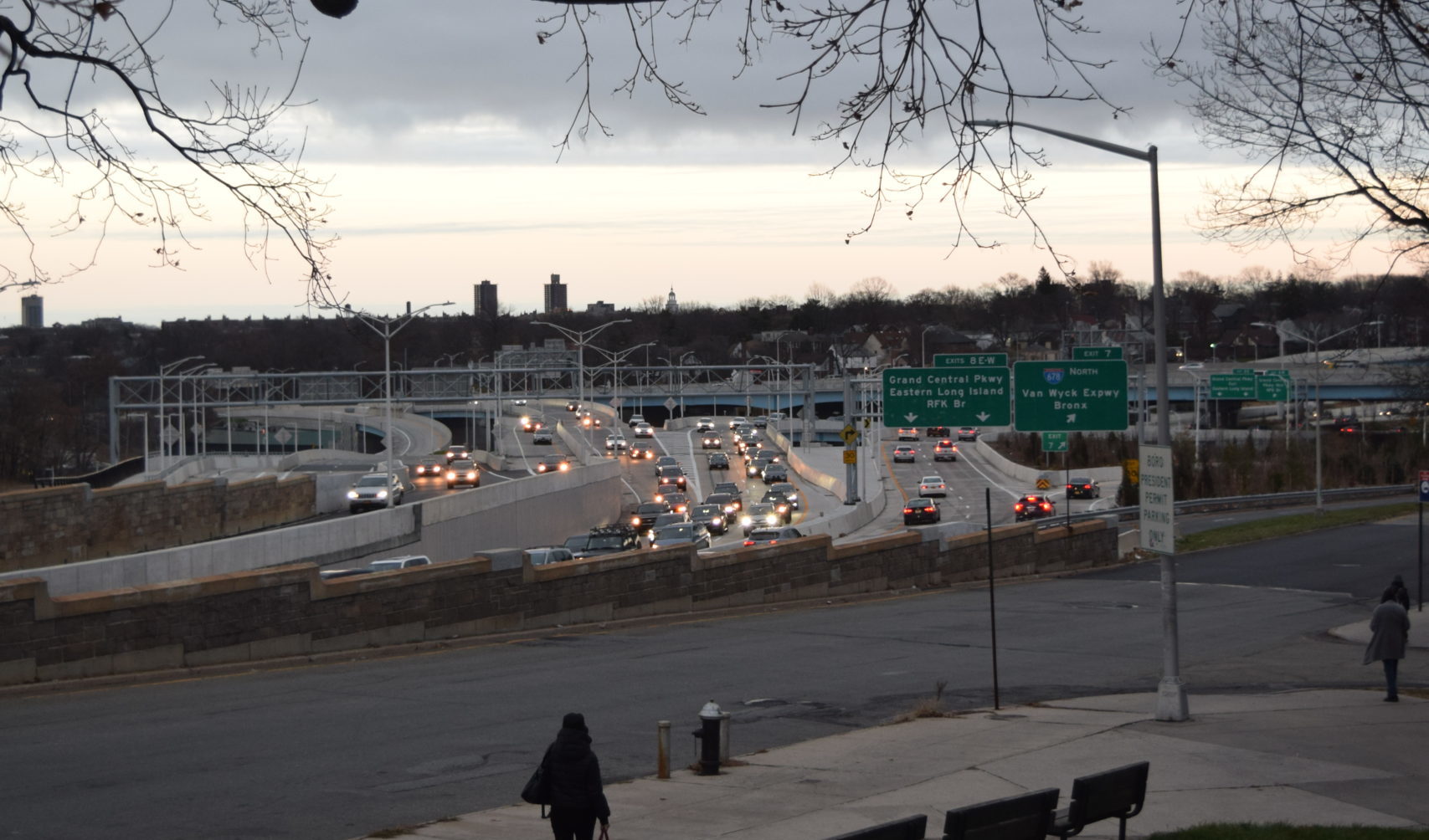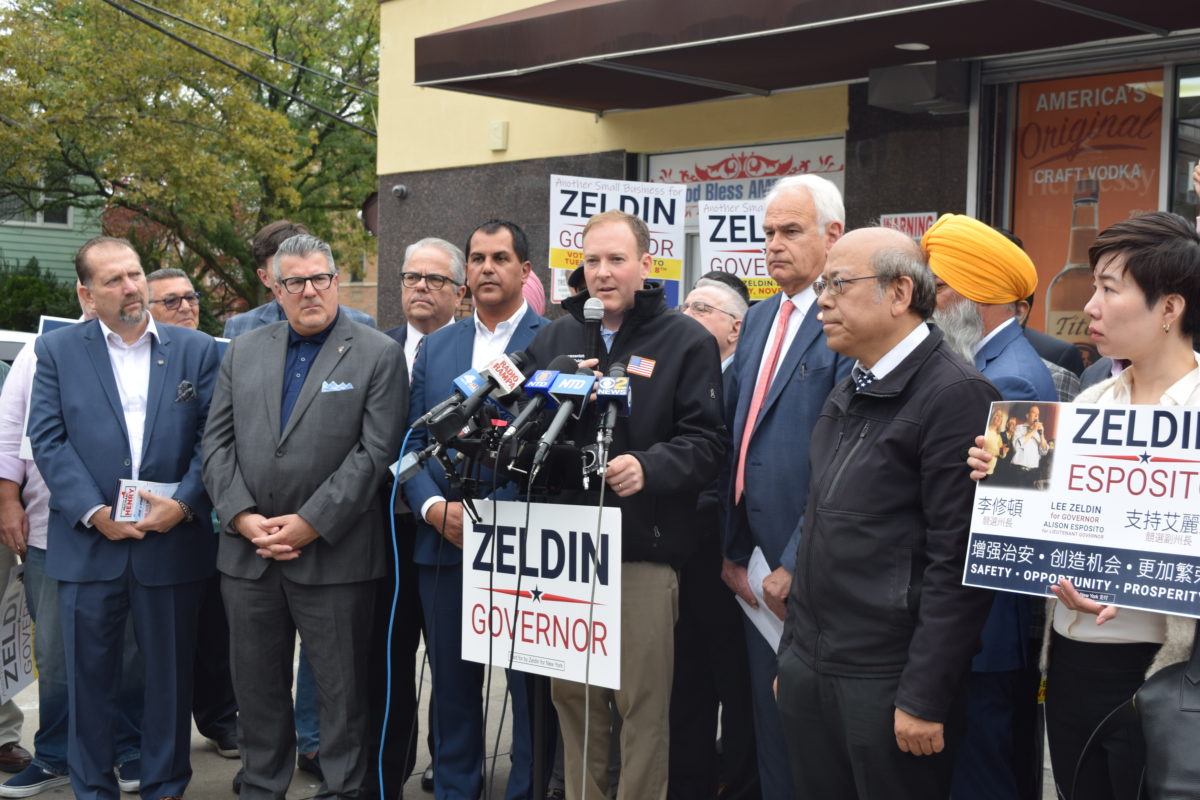By Jessica Meditz
jmeditz@queensledger.com
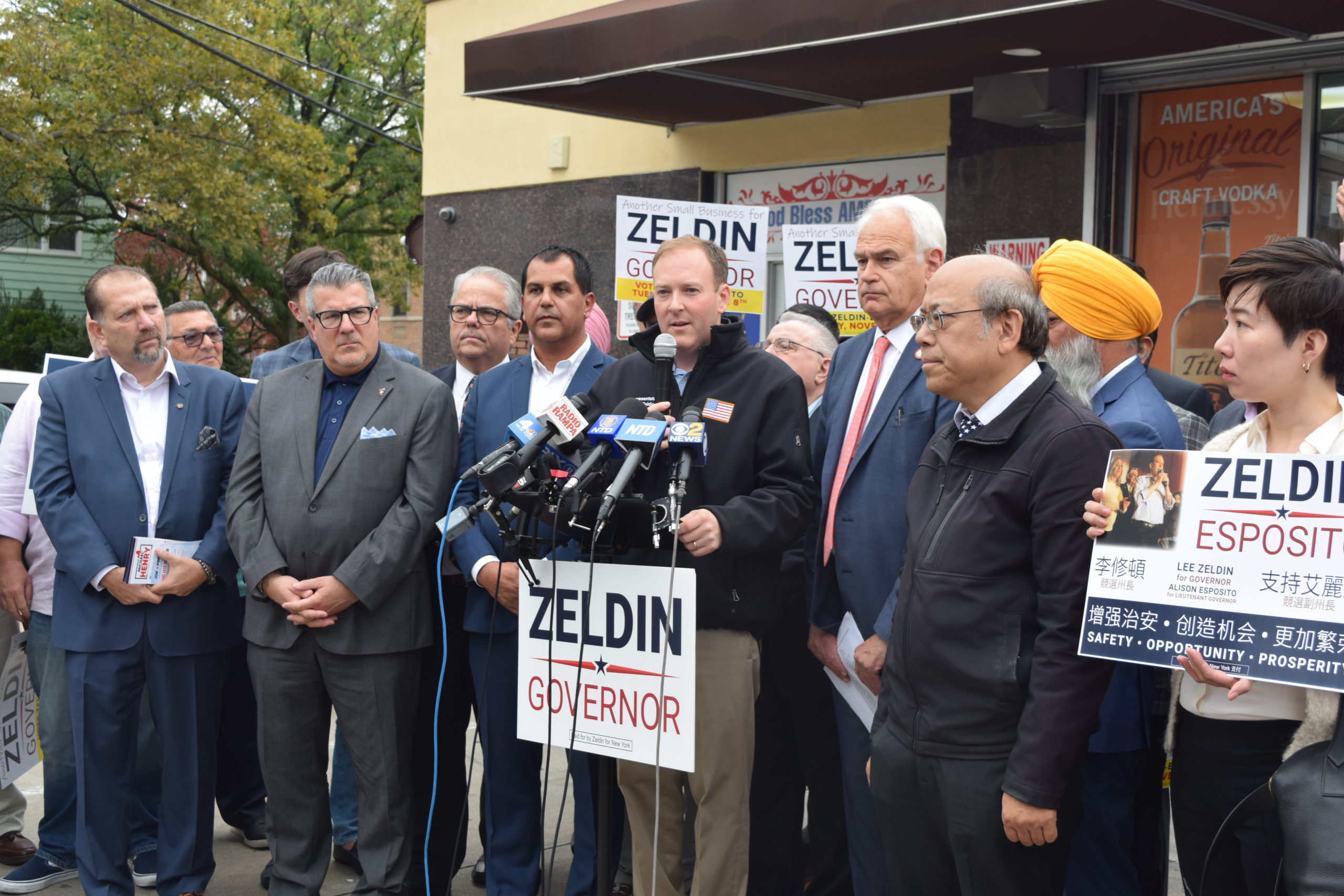
Republican challenger Rep. Lee Zeldin (at mic) was met with support from local business owners, including Karamjit Dhaliwal (to his left) and leaders Councilman Robert Holden (to his right) and Mike Conigliaro, who hopes to win AD28 (left of Dhaliwal).
Following last Tuesday night’s heated gubernatorial debate, Republican candidate Rep. Lee Zeldin of Long Island took to the streets of Glendale to further discuss top issues residents face both locally and statewide.
The press conference was held at the Mobil gas station located at 71-05 Myrtle Avenue, across from Glendale Diner — where Zeldin was met with support from local residents, business owners and elected officials, as well as concerns about the current state of the city.
Honing in on his tough-on-crime campaign approach, Zeldin reflected on the debate held the night before, where he reiterated that he would declare a crime emergency and suspend cashless bail if elected.
He accused Gov. Kathy Hochul of disregarding the surge in crime in New York, and not discussing “locking up anyone committing any crimes” during the debate.
Zeldin interpreted Hochul’s response of, “Anyone who commits a crime under our laws, especially with the change we made to bail, has consequences. I don’t know why that’s so important to you,” as a deflection and indication that she does not communicate with communities affected by crime.
“She doesn’t understand why it’s so important to me? That proves that she isn’t in touch with the people. It proves that she does not represent the people, because it should be first and foremost in her mind,” he said at the press conference.
“If she wants to represent New Yorkers, if she cares about New Yorkers, she would have her finger on the pulse and she wouldn’t have to make that point. She wouldn’t even be thinking it in her head, let alone actually saying it out loud.”
Bryan Lesswing, Hochul’s senior adviser, told the Queens Ledger that the comment in question was made in response to Zeldin’s accusation that she had not previously mentioned anything about crime in the debate, which she did on five separate occasions.
He said her response meant that she wasn’t sure why it was “so important” to him that she reiterate the point a sixth time.
“It’s no surprise that Lee Zeldin and his far-right allies are manipulating and lying about Governor Hochul’s comments, Zeldin himself has no serious plans to tackle crime and instead wants to bring more guns into our communities,” Hochul’s campaign spokesperson, Jerrel Harvey, said in a statement.
Karamjit Dhaliwal, who owns the gas station and the shops located on the property where the press conference was held, expressed his fears about increased crime that affects his business and employees.
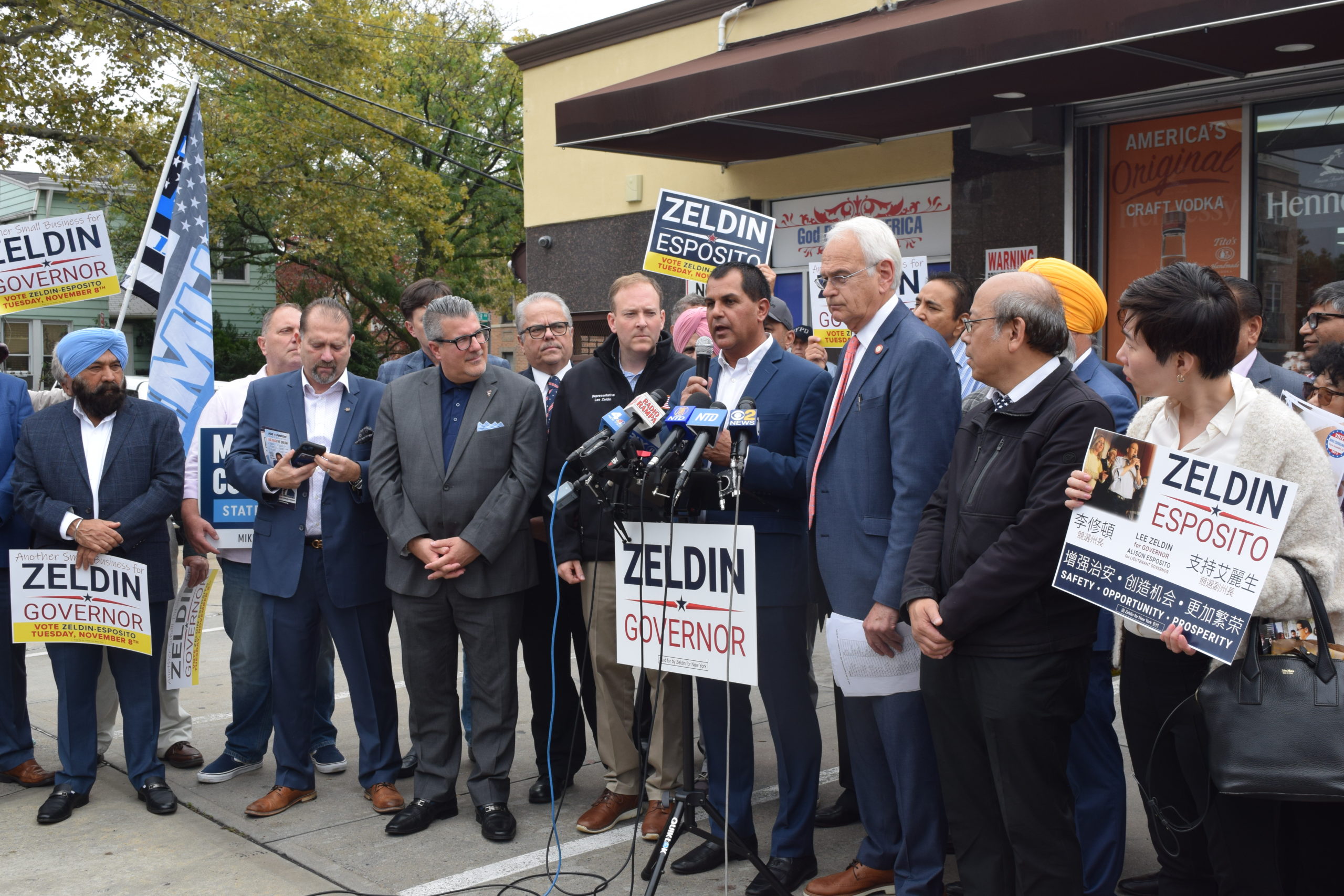
Dhaliwal expressed his support of Zeldin for governor, and opened up about how his establishment is affected by increased crimw.
He said that while he’s a Democrat himself, he feels the need to cross party lines for this election.
“We have a big problem with the crimes. We are getting robbed every week…They’re coming to steal stuff from our gas station, beating my employees, robbing at nighttime, jumping behind the counters, and it’s a danger,” Dhaliwal said.
He argued that bail reform should be repealed and that the NYPD does hard work, but their “hands are tied.”
During the press conference, an unknown individual who was getting gas started a verbal altercation with two of the gas station’s employees, shouting obscenities.
The individual had their car radio set to a high volume while the event was in progress, when the employees asked them to turn it down.
In fear it would get violent, the two Guardian Angels in attendance approached the situation.
“The reality of this moment, while we’re here for a press conference, this is with security here, this is with cameras here, this is with a whole lot of people here…You see how people are emboldened to challenge employees of this gas station, ready for physical confrontation right here,” Zeldin said.
“Three weeks ago, one of [Dhaliwal’s] employees was assaulted right here where we’re having this press conference. You almost witnessed something play out right here in front of all the cameras just now, despite security, despite all of us and despite all of you.”
Zeldin holds firm to his beliefs that members of law enforcement should be supported, that judges should have discretion and that he would remove Manhattan District Attorney Alvin Bragg from office on his first day if elected, accusing him of failing to enforce the law.
Although the state’s constitution provides a mechanism for removing certain public officials, such as DAs, the motion has little historical precedent.
Beyond crime, Zeldin feels New Yorkers should be “greatly concerned” with other issues, such as the large performance gap that exists with students in the state compared to the national average, as shown by the State Test scores that were released this week.
“We’re seeing as a result of the pandemic and lockdown policies, the impact on our kids. Their generation has suffered the most of all generations…our kids don’t even have a vote,” Zeldin said.
He brought up the point that New York spends two and a half times more per pupil than in Florida and Mississippi, for example — but students in those other states performed better on standardized tests.
Additionally, Zeldin would lift the cap on charter schools, promote advanced academics and reward students for good merit rather than on a lottery basis.
Hochul also said she would lift the cap on charter schools during the debate.
“We have to raise our game as it relates to education. We have to challenge our kids to go further. We need to achieve better outcomes,” he continued.
He also emphasized the importance of school safety, in regard to threats students face along with gun violence: other physical violence, bullying and drugs.
Zeldin feels confident that he’ll be able to work in concert with Mayor Eric Adams, as they share similar views on judges having discretion and amending Raise the Age, which is 2017 New York State legislation that raised the age of criminal responsibility to 18 years.
Early this year, Adams previously said prosecutors should be permitted to charge 16 and 17-year-old defendants caught with a gun as adults.
When asked about immigration and the migrant crisis New York City is facing, Zeldin said that he would call on President Joe Biden and advocate for completing the construction of the border wall, ending catch and release and enforcing the Trump-era Migrant Protection Protocols (MPP), or the “Remain in Mexico” policy.
He also does not support giving non-citizens the right to vote.
“We should support our customs and border patrol agents, and we shouldn’t be incentivizing and rewarding illegal activity,” he said. “It’s my opinion that we should be doing more to secure our Southern border.”
Zeldin emphasized that if elected, he would proudly work with anyone, regardless of political affiliation or differing views on certain topics.
“Republicans, Democrats and Independents need to look at this opportunity less than two weeks away as their opportunity as New Yorkers to save New York City and save New York State. They have an opportunity to restore balance and common sense up in Albany. Everything has gone too far left up in Albany,” he said.
“There are a lot of common sense Democrats…And there are a lot of other Democrats out there who proudly view themselves as independent-minded. They’re New Yorkers first and foremost. They care about rising crime and skyrocketing costs. They care about being able to feed their family and heat their home. They care about soaring crime and DAs who release violent criminals to roam free on our streets,” he continued. “These New Yorkers…need to take control of their destiny, their family’s destiny, their community’s destiny and do their part to save our state.”
Matthew Fischetti contributed reporting to this article.
